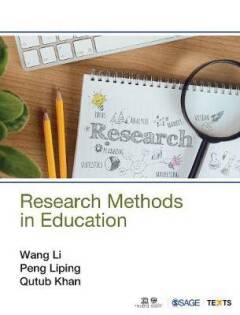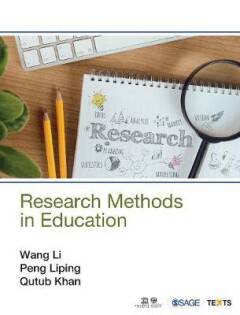
- Retrait gratuit dans votre magasin Club
- 7.000.000 titres dans notre catalogue
- Payer en toute sécurité
- Toujours un magasin près de chez vous
- Retrait gratuit dans votre magasin Club
- 7.000.0000 titres dans notre catalogue
- Payer en toute sécurité
- Toujours un magasin près de chez vous
Description
This book provides students with a sound theoretical understanding along with the practical knowledge and skills needed to carry out independent research in the field of education.
Designed to introduce students to the process of scientific research in education, Research Methods in Education goes beyond explaining the methods of empirical data collection and analysis. It encourages students and researchers to contextualise their knowledge and understanding of quantitative and qualitative research designs by drawing links between the research question and the underlying theoretical framework.
This book identifies key research methodologies, data collection tools (e.g., sampling and hypotheses testing), and data analysis methods, and focuses on the comparisons between them. Each chapter highlights the strengths and weaknesses of the key research methods.
Key Features:
- Numerous examples interspersed throughout the text exemplify the role of educational research in educational policy making across the globe.
- Each chapter comprises robust pedagogical features including short examples, detailed case studies, lists of key terms and suggested readings, and so on.
- Self-test exercises are spread throughout the text to aid understanding and easy-recollection of the topics learnt.
- Demonstrates the importance and ideal sequence of each of the research activities.
Spécifications
Parties prenantes
- Auteur(s) :
- Editeur:
Contenu
- Nombre de pages :
- 608
- Langue:
- Anglais
Caractéristiques
- EAN:
- 9789352806249
- Date de parution :
- 14-09-18
- Format:
- Livre broché
- Format numérique:
- Trade paperback (VS)
- Dimensions :
- 189 mm x 246 mm
- Poids :
- 1070 g

Les avis
Nous publions uniquement les avis qui respectent les conditions requises. Consultez nos conditions pour les avis.






